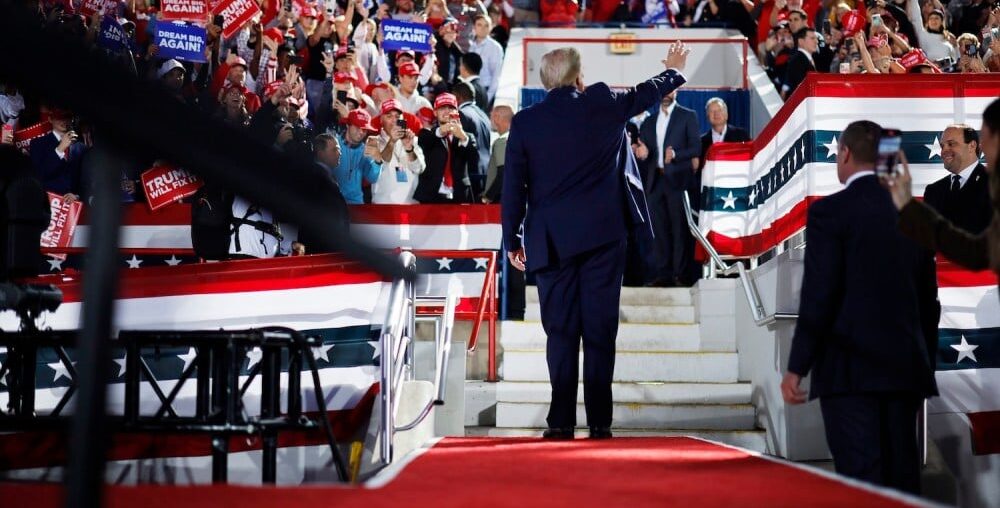
At a rally on Monday in Raleigh, North Carolina, former U.S. President Donald Trump vowed, if elected, to impose tariffs of between 25 and 100 percent on Mexico until it curbed migration at the U.S. southern border. Later that day in Pittsburgh, Trump said he would impose a 25 percent tariff on Mexico to crack down on fentanyl trafficking and would do the “same thing to China,” which he accuses of exporting fentanyl to Mexico.
Mexico is the United States’ biggest trade partner, and imposing the tariffs Trump proposes would likely undermine the trade deal that the Republican nominee negotiated with Mexico and Canada while in office—and invite retaliation.
At a rally on Monday in Raleigh, North Carolina, former U.S. President Donald Trump vowed, if elected, to impose tariffs of between 25 and 100 percent on Mexico until it curbed migration at the U.S. southern border. Later that day in Pittsburgh, Trump said he would impose a 25 percent tariff on Mexico to crack down on fentanyl trafficking and would do the “same thing to China,” which he accuses of exporting fentanyl to Mexico.
Mexico is the United States’ biggest trade partner, and imposing the tariffs Trump proposes would likely undermine the trade deal that the Republican nominee negotiated with Mexico and Canada while in office—and invite retaliation.
China, which ranks third in trade with the United States, has cooperated with the United States on fentanyl issues in recent months. But this does not seem to have swayed Trump, who has promised a significant escalation of tariffs against the country as part of a broader bipartisan embrace of protectionism.
This post is part of FP’s live coverage with global updates and analysis throughout the U.S. election. Follow along here.

